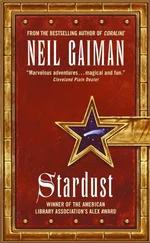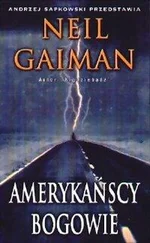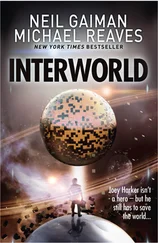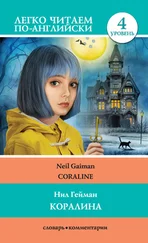Smoke Mirrors - Neil Gaiman
Здесь есть возможность читать онлайн «Smoke Mirrors - Neil Gaiman» весь текст электронной книги совершенно бесплатно (целиком полную версию без сокращений). В некоторых случаях можно слушать аудио, скачать через торрент в формате fb2 и присутствует краткое содержание. Жанр: на английском языке. Описание произведения, (предисловие) а так же отзывы посетителей доступны на портале библиотеки ЛибКат.
- Название:Neil Gaiman
- Автор:
- Жанр:
- Год:неизвестен
- ISBN:нет данных
- Рейтинг книги:3 / 5. Голосов: 1
-
Избранное:Добавить в избранное
- Отзывы:
-
Ваша оценка:
- 60
- 1
- 2
- 3
- 4
- 5
Neil Gaiman: краткое содержание, описание и аннотация
Предлагаем к чтению аннотацию, описание, краткое содержание или предисловие (зависит от того, что написал сам автор книги «Neil Gaiman»). Если вы не нашли необходимую информацию о книге — напишите в комментариях, мы постараемся отыскать её.
Neil Gaiman — читать онлайн бесплатно полную книгу (весь текст) целиком
Ниже представлен текст книги, разбитый по страницам. Система сохранения места последней прочитанной страницы, позволяет с удобством читать онлайн бесплатно книгу «Neil Gaiman», без необходимости каждый раз заново искать на чём Вы остановились. Поставьте закладку, и сможете в любой момент перейти на страницу, на которой закончили чтение.
Интервал:
Закладка:
Once I'd finished the story I showed it to a friend, who said it read like an outline for a novel. All I could do was congratulate her on her perspicacity. But Lisa Turtle liked it, and so do I.
The Daughter of Owls
John Aubrey, the seventeenth-century collector and historian, is one of my favourite writers. His writings contain a potent mixture of credulity and erudition, of anecdote, reminiscence and conjecture. Reading Aubrey's work, one gets an immediate sense of a real person talking from the past in a way that transcends the centuries: an enormously likable, interesting person. Also, I like his spelling. I tried writing this story in a couple of different ways, and I was never satisfied with it. Then it occurred to me to write it as by Aubrey.
The overnight train to Glasgow from London is a sleeper that gets in at about five in the morning. When I got off the train, I walked to the station hotel and went inside. I intended to walk down the hall to the reception desk and get a room, then get some more sleep, and then, once everyone was up and about, I planned to spend the next couple of days at the science fiction convention that was being held in the hotel. Officially, I was covering it for a national newspaper. The year was 1985.
On the way down the hall to the reception desk, I passed the bar, empty but for a bemused barman and an English fan named John Jarrold, who, as the Fan Guest of Honour at the convention, had been given an open bar tab, which he was using while others slept.
So I stopped to talk to John and never actually made it to the reception desk. We spent the next forty-eight hours chatting, telling jokes and stories, and enthusiastically massacring all we could remember of Guys and Dolls in the small hours of the next morning, when the bar had started to empty out again. At one point in that bar, I had a conversation with the late Richard Evans, an English SF editor, that, six years later, would start to turn into Neverwhere.
I no longer remember quite why John and I began talking about Cthulhu in the voices of Peter Cook and Dudley Moore, nor why I decided to start lecturing John on H. P. Lovecraft's prose style. I suspect it had something to do with lack of sleep.
These days John Jarrold is a respectable editor and a bastion of the British publishing industry. Some of the middle bits of this story began life in that bar, with John and I doing Pete and Dud as creatures out of H. P. Lovecraft. Mike Ashley was the editor who cajoled me into making them a story.
As of October 1999, the story is nominated for a World Fantasy Award as best short story.
Virus
This was written for David Barrett's Digital Dreams, a computer fiction anthology. I don't play many computer games anymore. When I did, I noticed they tended to take up areas of my head. Blocks fell or little men ran and jumped behind my eyelids as I went to sleep. Mostly I'd lose, even when playing with my mind. This came from that.
This story was commissioned by Penthouse for their twentieth-anniversary issue, January 1985. For the previous couple of years I'd been surviving as a young journalist on the streets of London by interviewing celebrities for Penthouse and Knave, two English "skin" magazines-tamer by far than their American equivalents; it was an education, all things considered.
I asked a model once if she felt she was being exploited. "Me?" she said. Her name was Marie. "I'm getting well paid for it, love. And it beats working the night shift in a Bradford biscuit factory. But I'll tell you who's being exploited. All those blokes who buy it. Wanking over me every month. They're being exploited." I think this story began with that conversation.
I was satisfied with this story when I wrote it: It was the first fiction I had written that sounded in any way like me and that didn't read like me doing someone else. I was edging toward a style. To research the story I sat in the Penthouse U.K. Docklands offices and thumbed through twenty years' worth of bound magazines. In the first Penthouse was my friend Dean Smith. Dean did makeup for Knave, and, it turned out, she'd been the very first Penthouse Pet of the Year in 1965. I stole the 1965 Charlotte blurb directly from Dean's blurb, "Resurgent individualist" and all. The last I heard, Penthouse was hunting for Dean for their twenty-fifth-anniversary celebrations. She'd dropped out of sight. It was in all the newspapers.
It occurred to me, while I was looking at two decades of Penthouses, that Penthouse and magazines like it had absolutely nothing to do with women and absolutely everything to do with photographs of women. And that was the other place the story began.
Only the End of the World Again
Steve Jones and I have been friends for fifteen years. We even edited a book of nasty poems for kids together. This means that he gets to ring me up and say things like "I'm doing an anthology of stories set in H. P. Lovecraft's fictional town of Innsmouth. Do me a story."
This story came from a number of things coming together (that's where we writers Get Our Ideas, in case you were wondering). One of them was the late Roger Zelazny's book A Night in the Lonesome October, which has tremendous fun with the various stock characters of horror and fantasy: Roger had given me a copy of his book a few months before I came to write this story and I'd enjoyed it enormously. At about the same time, I was reading an account of a French werewolf trial held 300 years ago. I realised while reading the testimony of one witness that the account of this trial had been an inspiration for Saki's wonderful story "Gabriel-Ernest" and also for James Branch Cabell's short novel The White Robe, but that both Saki and Cabell had been too well brought up to use the thro wing-up of the fingers motif, a key piece of evidence in the trial. Which meant that it was now all up to me.
Larry Talbot was the name of the original Wolfman, the one who met Abbott and Costello.
And there was that man Steve Jones again. "I want you to write one of your story poems for me. It needs to be a detective story set in the near future. Maybe you could use the Larry Talbot character from 'Only the End of the World Again'."
It happened that I had just finished co-writing a screen adaptation of Beowulf, the old English narrative poem, and was mildly surprised by the number of people who, mishearing me, seemed to think I had just written an episode of "Baywatch". So I began retelling Beowulf as a futuristic episode of "Baywatch" for an anthology of detective stories. It seemed to be the only sensible thing to do.
Look, I don't give you grief over where you get your ideas from.
Fifteen Painted Cards from a Vampire Tarot
One day, perhaps, I'll finish the major arcana: seven cards, and seven little stories, still to go. And then there's the minor arcana. You can draw your own pictures.
If the stories in this book were arranged in chronological order, rather than in the strange and haphazard well-it-feels-right sort of order I have put them in, this story would be the first in the book. I dozed off one night in 1983, listening to the radio. When I fell asleep, I was listening to a piece on buying in bulk; when I woke up, they were talking about hired killers. That was where this story came from.
I'd been reading a lot of John Collier short stories before I wrote this. Rereading it several years ago, I realised that it was a John Collier story. Not as good as any good John Collier story, nor written as well as Collier wrote; but it's still a Collier story for all that, and I hadn't noticed that when I was writing it.
Читать дальшеИнтервал:
Закладка:
Похожие книги на «Neil Gaiman»
Представляем Вашему вниманию похожие книги на «Neil Gaiman» списком для выбора. Мы отобрали схожую по названию и смыслу литературу в надежде предоставить читателям больше вариантов отыскать новые, интересные, ещё непрочитанные произведения.
Обсуждение, отзывы о книге «Neil Gaiman» и просто собственные мнения читателей. Оставьте ваши комментарии, напишите, что Вы думаете о произведении, его смысле или главных героях. Укажите что конкретно понравилось, а что нет, и почему Вы так считаете.









